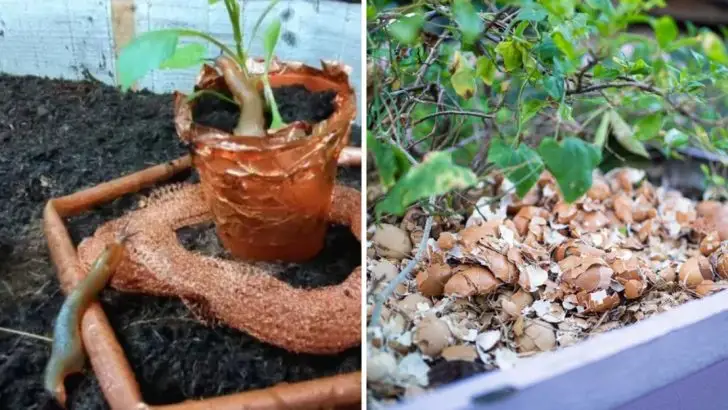I never thought I’d spend so much time thinking about slugs, but here we are. After waking up to shredded leaves and slimy trails across my patio plants, I knew I had a full-blown invasion on my hands. I didn’t want to dump chemicals in my garden, especially with kids and pets around, so I started testing out every natural method I could find.
Some tricks worked, others didn’t do much, and a couple surprised me with how fast they cleared things up. It took a bit of trial and error, but I ended up finding a mix of methods that sent the slugs packing overnight—or close to it. If you’re dealing with similar slug drama, here’s what actually worked for me.
Copper Barrier
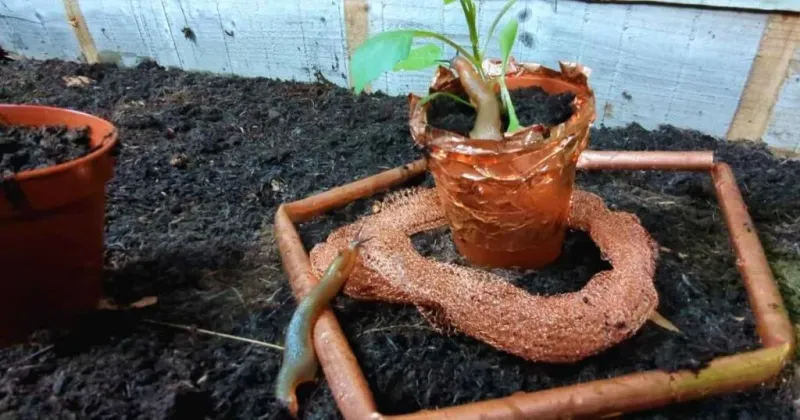
Copper barriers are my go-to solution for slug prevention. Slugs dislike the sensation of copper, which helps keep them away from precious plants. You can easily wrap copper tape around pots or garden beds. It’s an eco-friendly and efficient tactic. Place it strategically to ensure slugs have no entry points.
As a natural deterrent, copper is a gardener’s ally. Its metallic properties give slugs an unpleasant shock. This simple method is both effective and stylish, adding a decorative touch to the garden.
Eggshells as Deterrents
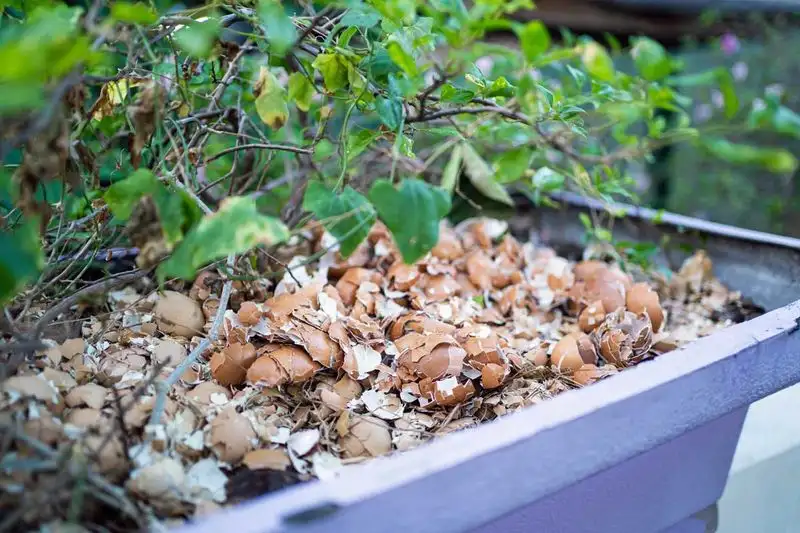
Recycling eggshells into slug deterrents is both practical and resourceful. Crushed eggshells create a jagged barrier that slugs find difficult to cross. Sprinkle these around the base of plants, and watch the magic unfold.
The sharp edges of the shells can irritate and deter slugs. Plus, as they decompose, eggshells enrich the soil with calcium, benefiting the plants. This dual-purpose solution is perfect for eco-conscious gardeners. Remember to replace them regularly for maximum effectiveness.
Diatomaceous Earth
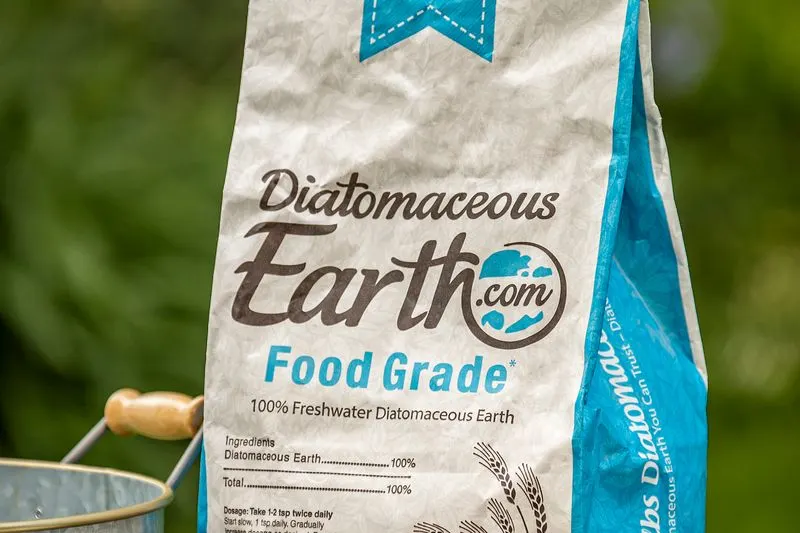
Diatomaceous earth offers a safe way to repel slugs. This natural powder dehydrates slugs upon contact, making it an effective deterrent. Dust it around vulnerable plants, especially after a rain, to maintain a solid defense.
Its microscopic sharpness is harmless to humans but lethal to slugs. A bonus is that it also deters other pests, like ants. Ensure the area remains dry for optimal results. This non-toxic approach aligns with organic gardening principles, safeguarding both plants and beneficial insects.
Beer Traps
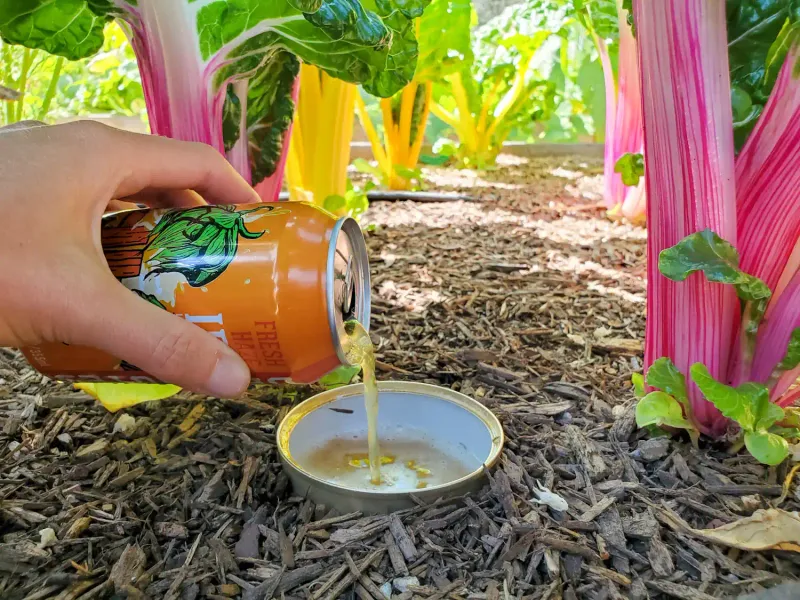
Beer traps are a classic, yet surprisingly effective method for slug control. Slugs are drawn to beer due to its yeast content. By burying a shallow dish filled with beer at soil level, you attract and capture these pests.
The sweet, fermented aroma lures them in, where they meet their fate. It’s an organic solution that doubles as a slug party stopper. Check and refresh the traps frequently to maintain their allure. This approach is not only effective but also easy on your garden’s ecosystem.
Handpicking at Dusk
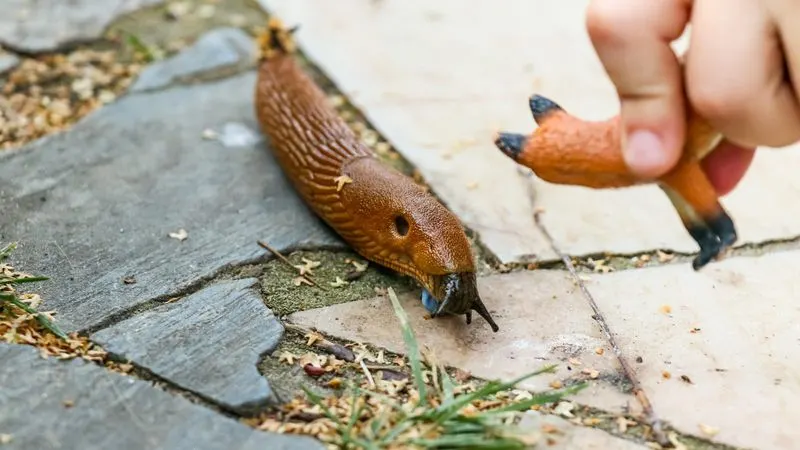
Handpicking slugs during the cool, damp dusk hours can be an effective control method. As they emerge, use a flashlight and a pair of gloves to collect them. It’s labor-intensive but gratifying.
Dispose of them far from your garden or into soapy water to prevent return. This method allows for precise control over slug populations. Engage family members in this nightly ritual for quicker results. Consistency is key, and with dedication, you’ll see a significant decrease in numbers.
Coffee Grounds Barrier
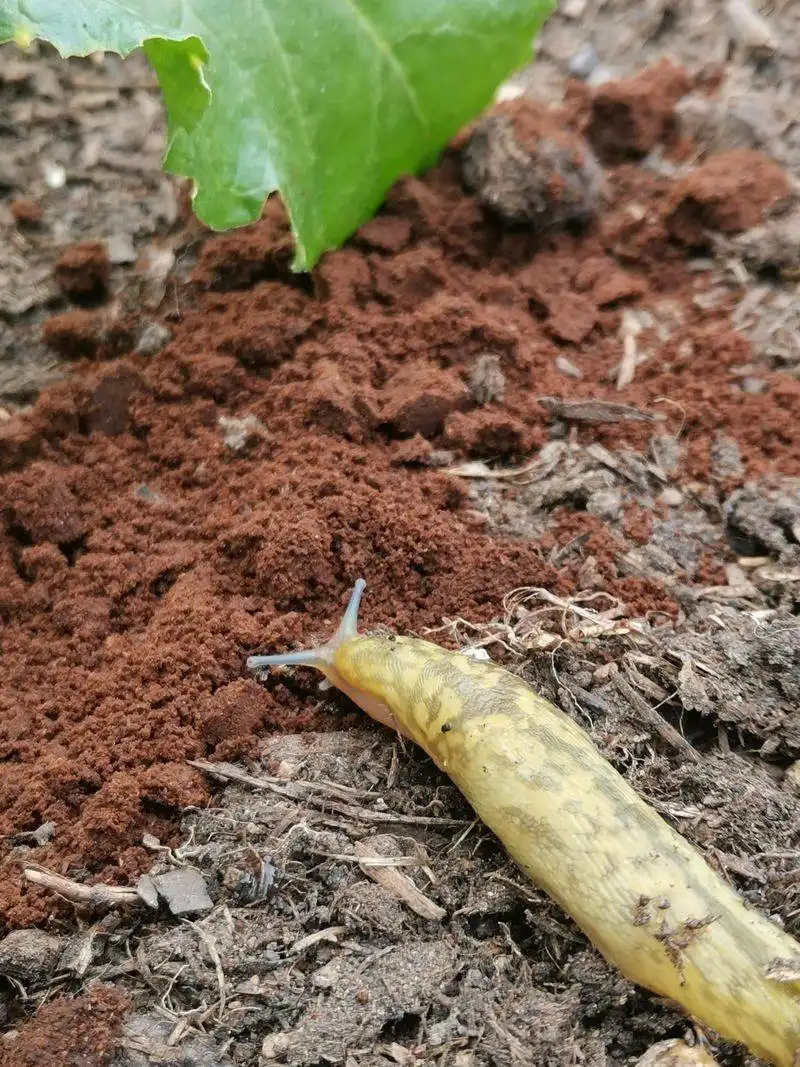
Coffee grounds serve as an excellent natural deterrent for slugs. Their texture and caffeine content repel these pests effectively. Scatter the grounds around garden plants to create an unwelcoming environment.
Not only do they keep slugs at bay, but they also enrich the soil with nitrogen as they decompose. This method supports sustainable gardening practices by recycling kitchen waste. Refresh the grounds regularly, especially after rain, to maintain their effectiveness.
Garlic Spray
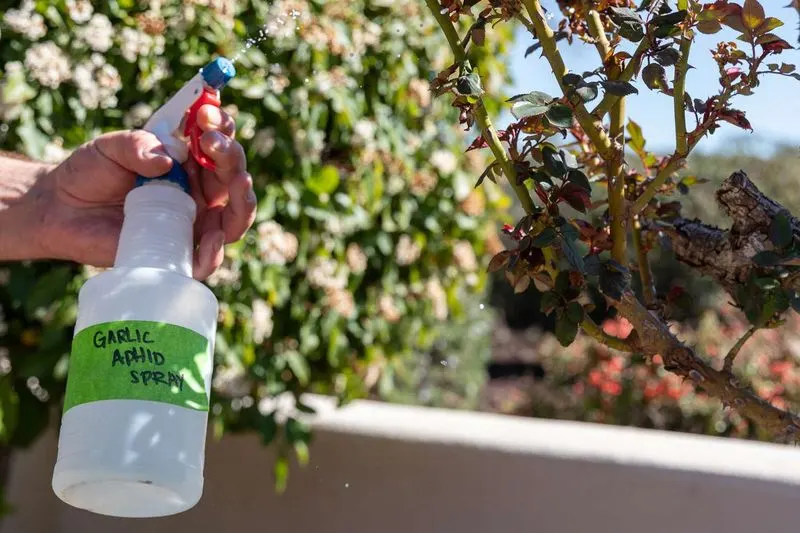
Garlic spray is a potent organic remedy for slug invasions. Create a solution by steeping crushed garlic in water. Spray this mixture directly onto plants to deter slugs with its pungent aroma.
Slugs find the scent offensive, steering clear of treated areas. This homemade concoction is safe for plants and soil, providing an eco-friendly alternative to chemical pesticides. Reapply after rain for continuous protection. This natural remedy is both simple and effective, keeping your garden slug-free.
Nematodes
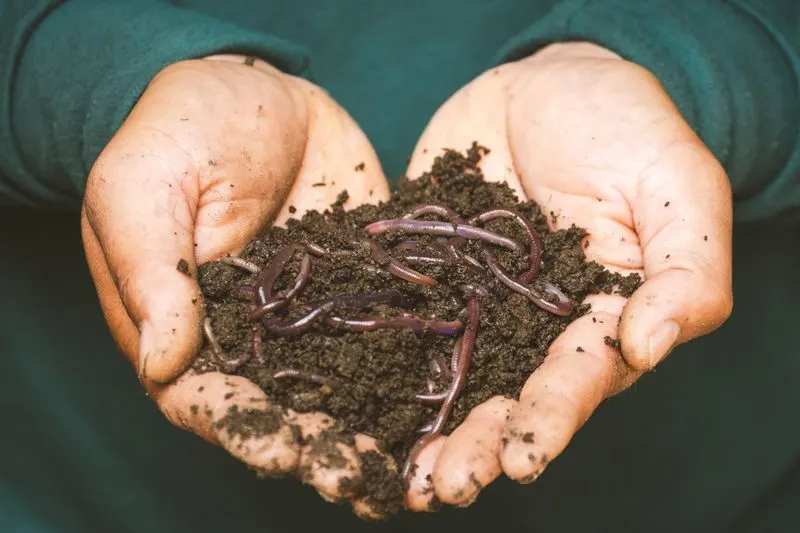
Employing nematodes is an innovative biological control method. These microscopic organisms naturally prey on slugs, reducing their population. Introduce them into the garden soil, where they actively seek out slugs.
Nematodes provide a long-term solution, as they continue to multiply and hunt. This approach eliminates the need for chemical interventions, aligning perfectly with organic gardening. Ensure to apply them during moist conditions for optimal results. This method not only targets slugs but also supports a balanced ecosystem.
Seaweed Mulch
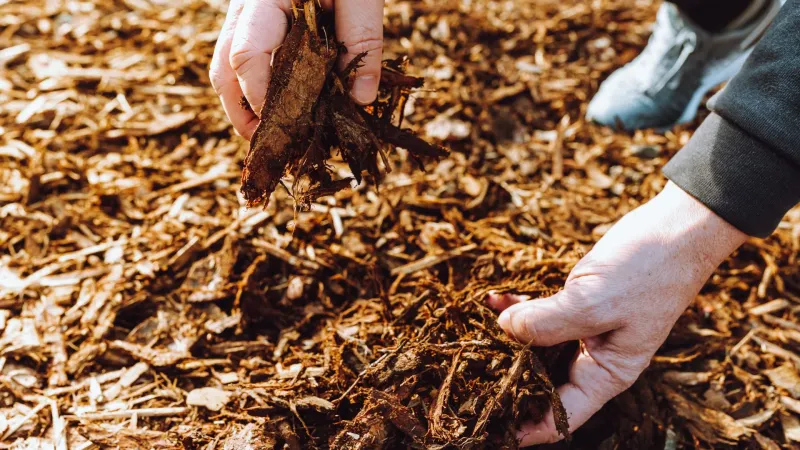
Seaweed mulch serves as a natural slug deterrent. Its rough texture and salt content make it unappealing to slugs. Spread it around plants for a protective barrier.
Besides deterring slugs, seaweed enriches the soil with beneficial nutrients as it decomposes. It’s a sustainable choice for gardeners near coastal areas. Regularly refresh the mulch to maintain its effectiveness. This method not only controls pests but also enhances soil health, promoting robust plant growth.
Pine Needle Mulch
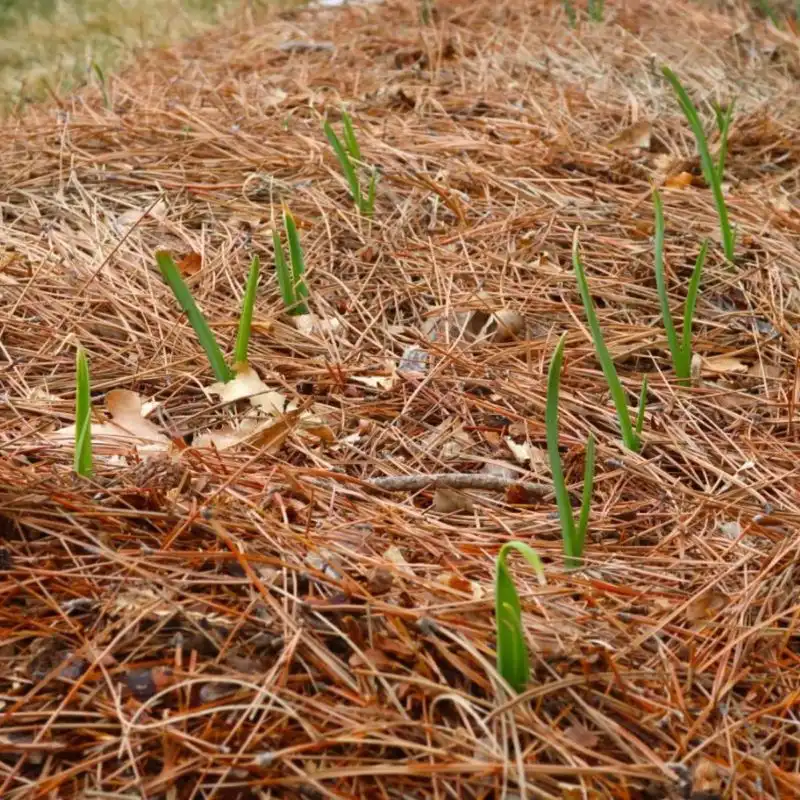
Pine needle mulch is a natural solution to slug issues. Its rough texture creates an uncomfortable barrier for slugs. Spread it around the base of plants to keep these pests at bay.
This type of mulch also helps retain soil moisture and suppress weeds. It’s particularly effective in acidic soil-loving plant areas. Regular replenishment ensures continued protection. Pine needles are a versatile addition to any organic garden, providing multiple benefits beyond slug control.
Slug-Repelling Plants
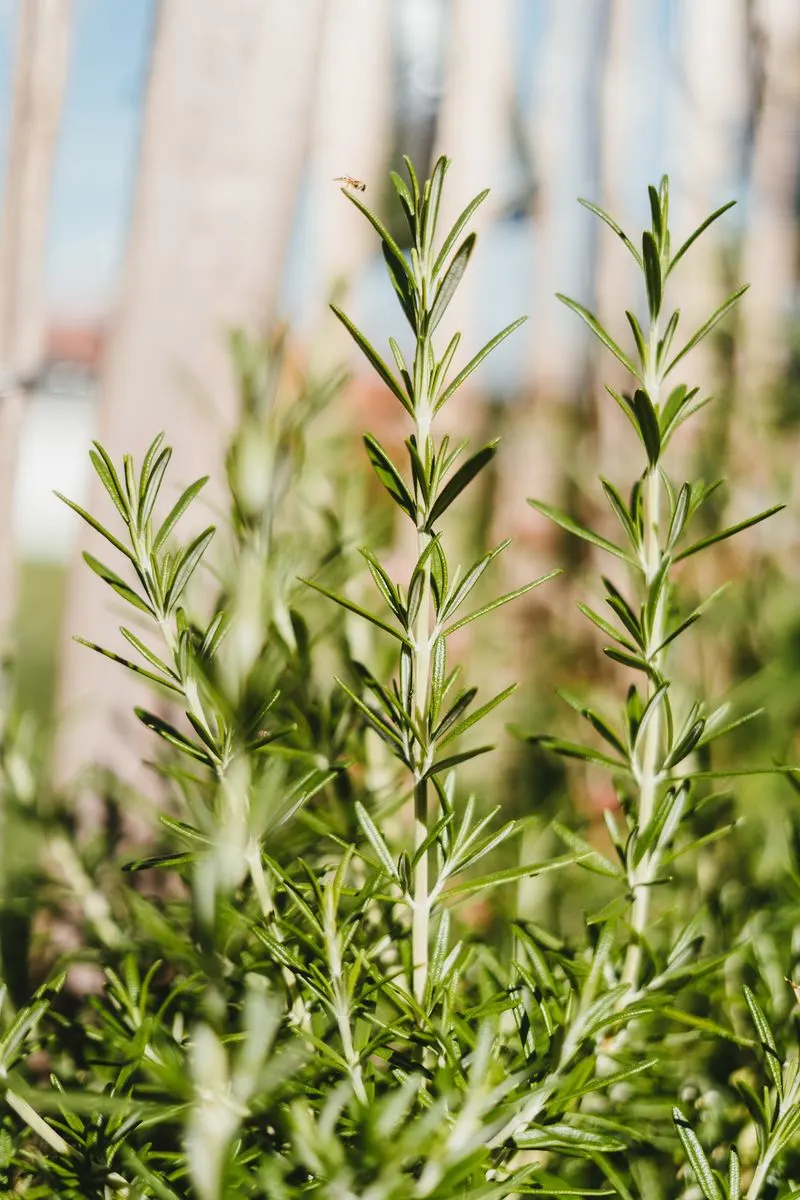
Certain plants naturally deter slugs with their scent and taste. Fennel, rosemary, and sage are excellent choices. Plant them strategically around vulnerable areas to create a fragrant barrier.
These plants not only repel slugs but also attract beneficial insects, enhancing garden biodiversity. Their aromatic presence is a delightful addition to any garden. Regular pruning encourages growth and maintains their effectiveness. This method combines pest control with garden aesthetics for an organic solution.
Natural Predators
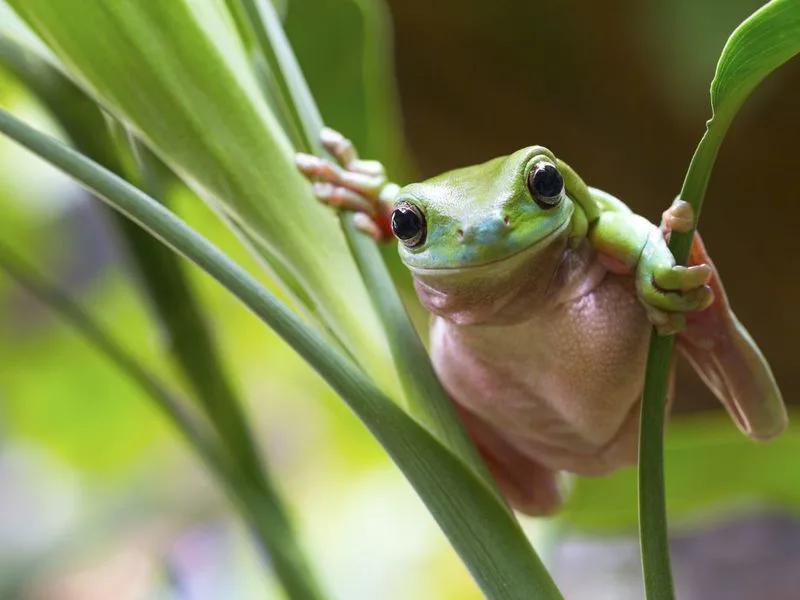
Encouraging natural predators like birds and frogs is an eco-friendly way to control slugs. These creatures find slugs a tasty treat, naturally managing their numbers.
Create habitats by adding water features or birdhouses to attract these allies. This method supports a balanced garden ecosystem without chemicals. Over time, you’ll notice fewer slugs as predators maintain their population. By fostering a diverse wildlife-friendly environment, your garden thrives in harmony with nature.

